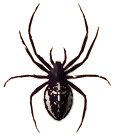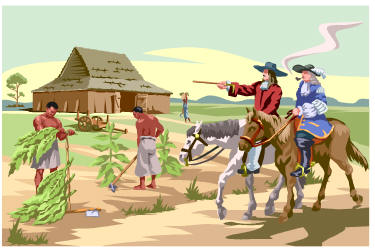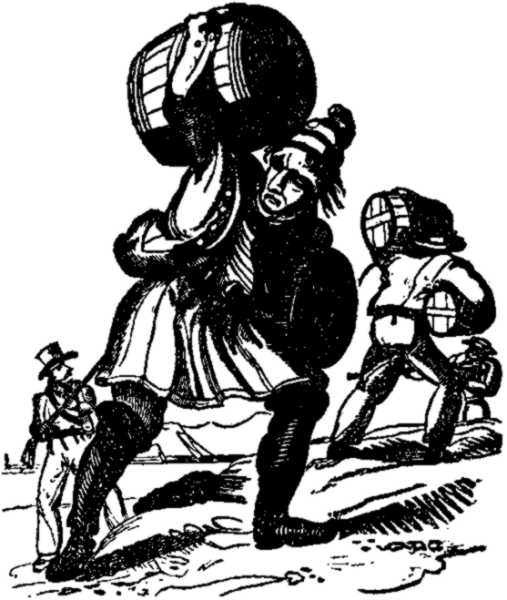Bet You Didn't Know

Anansi Stories:
Slaves working on the sugar plantations in the West Indies
entertained themselves and kept their minds off of the horrible
treatment they were receiving by telling folktales about Anansi,
a black widow spider. In the stories, Anansi faces
struggles with larger animals, which he always ended up
outsmarting. Many historians believe that Anansi represents the
slaves and the larger animals represent the plantation owners.
Take a look at the following link. It gives an example of
an Anansi story of why all
these tales were named after .
 Slavery: Triangular Trade
The Portuguese started using slaves to harvest sugar cane in
Brazil starting as early as the year 1510. It wasn't long
until other countries caught on and started to buy and sell
slaves. Traders kidnapped Africans from their villages and
brutally shipped them to the West Indies. Once in the West
Indies the surviving Africans were sold into slavery. This
is what we now call the Triangular Trade.
Slavery: Triangular Trade
The Portuguese started using slaves to harvest sugar cane in
Brazil starting as early as the year 1510. It wasn't long
until other countries caught on and started to buy and sell
slaves. Traders kidnapped Africans from their villages and
brutally shipped them to the West Indies. Once in the West
Indies the surviving Africans were sold into slavery. This
is what we now call the Triangular Trade.
 Rum:
Rum is a byproduct made cheaply from the sludge that is created
when sugar cane is being processed. During the 1700's rum
was used as a chief trading item. It was traded for animal
furs and even for slaves, as seen in this picture . Many
people enjoy drinking rum especially when mixed with cola.
So next time you are sipping your Captain and Coke remember that
the rum you are drinking came from sugar cane sludge. It
just might not seem that appealing anymore.
Rum:
Rum is a byproduct made cheaply from the sludge that is created
when sugar cane is being processed. During the 1700's rum
was used as a chief trading item. It was traded for animal
furs and even for slaves, as seen in this picture . Many
people enjoy drinking rum especially when mixed with cola.
So next time you are sipping your Captain and Coke remember that
the rum you are drinking came from sugar cane sludge. It
just might not seem that appealing anymore.
This ends our trip down sugar cane lane. Thanks for
coming and don't forget to check out all the other organisms
found on the
Multiple Organisms home page.